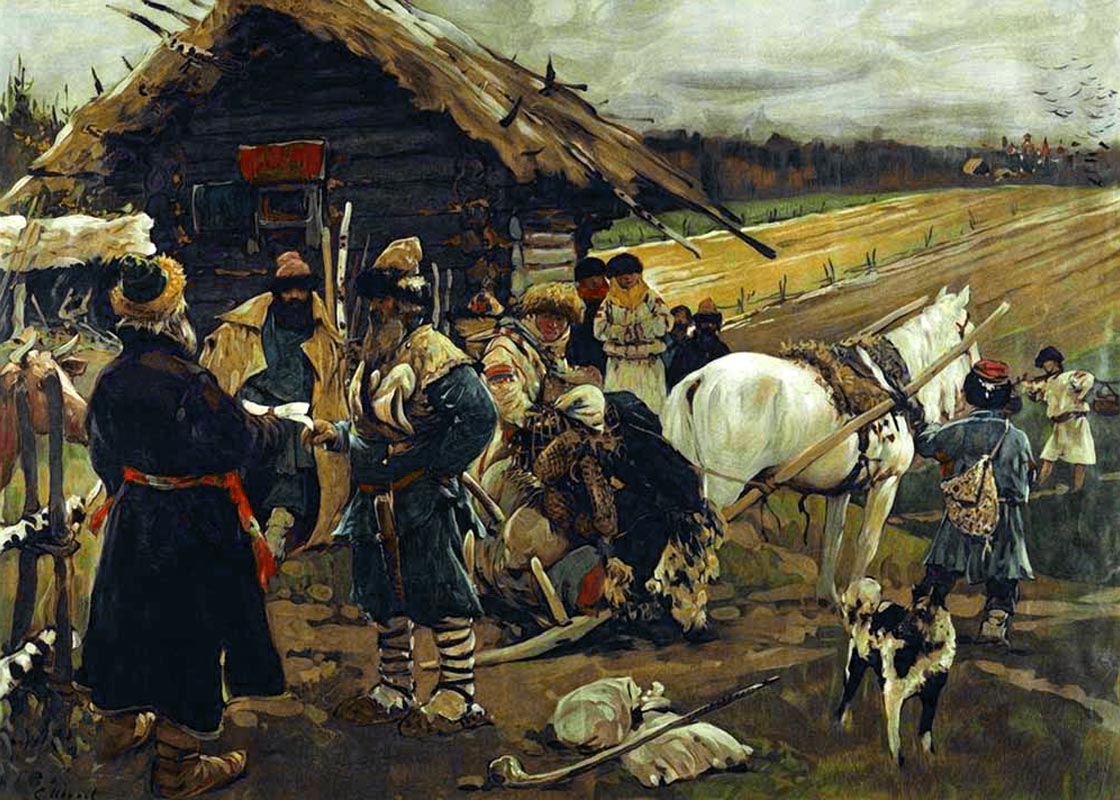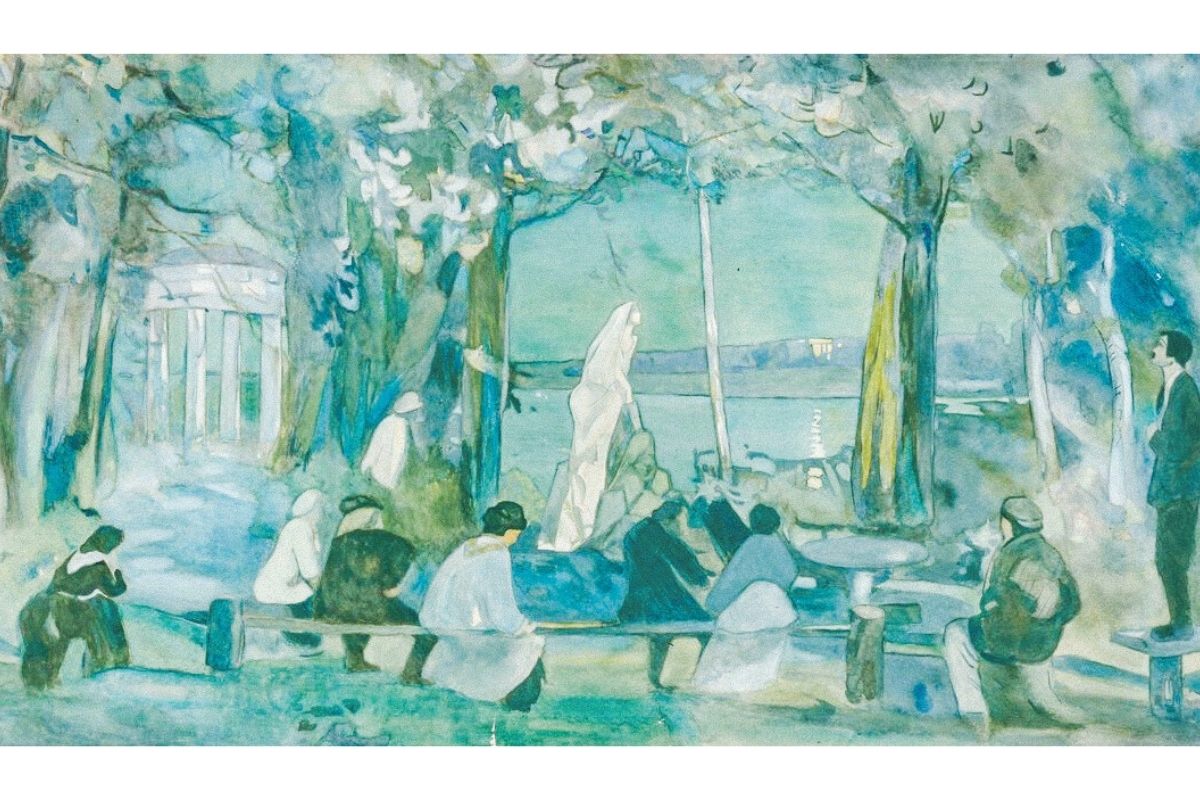In the pantheon of great Russian writers, Anton Chekhov (1860-1904) stands out as a master of his craft, whose influence on modern literature endures to this day.
Chekhov is best known for his dramatic works: plays such as Uncle Vanya, The Cherry Orchard, Three Sisters, and The Seagull.
This is perhaps unfortunate, as the bulk of Chekhov’s work consists of his collection of short stories, which masterfully portray the complicated lives of ordinary late 19th-century Russians.
The inner life of a character
The vast majority of Chekhov’s works, including his plays, are not necessarily known for their conventional action, memorable plots, or neat endings – much like real life!
Rather, they are a sincere presentation of the conflicts, convictions, and sentiments of the various social classes in the Russia of his time, and an exploration of the social relations that tie his wide variety of characters together.
From poor, middle, and rich peasants, to middle-class provincial upstarts; from local government officials, to professionals, doctors, and lecturers – Chekhov strove to convey the everyday drudgeries and banalities of life in Tsarist Russia, without any pretensions or superficiality.
Simple and concise language is used to express the complex and convoluted emotions and feelings of his characters through the drudgery of day-to-day life. The consciousness of his characters is shown to be in constant doubt, tribulation, frustration; eternally questioning of the conditions in their lives.
In stripping away any excess and artifice, Chekhov was able to lay bare the inner life and motivations of his characters and reveal what was truthful and real about them.
In the story Anna Round the Neck, for instance, Anna is the younger, attractive, newly-wedded wife of an elder bourgeois official.
She comes from a poor family. Their marriage is devoid of any love or affection, and Anna struggles to find any joy in her new situation. Her family remains equally impoverished, and she merely becomes dependent on her wealthy husband.
Anna uses her youth and attractiveness to gain a standing among ruling social circles, independently of her husband. Through these opportunities, she immerses herself in the lifestyle of the bourgeois, gaining a separate stance in her marriage – and forgetting all about her impoverished father and brothers.
Anna’s impoverished background does not make her intrinsically pure or virtuous, but susceptible to being transformed into a self-interested bourgeois by a change in her conditions.
In a strikingly materialist way, Chekhov uncovers how people are ultimately a product of the world around them.
Tsarist Russia
Chekhov was writing during a time of tremendous changes and transformations in Tsarist Russia.
Years after the abolition of serfdom in 1861, the largely peasant population of the Russian Empire found itself in a more desperate and impoverished position at the hands of landlords, Tsarist officials, and the rich peasantry or ‘kulaks’.

Chekhov’s serialised story Peasants is a truthful and gritty depiction of the lives of the poor peasantry, exposing the material and cultural backwardness of their conditions.
It follows a waiter in Moscow named Chikildeyev, who – after being left ill and emaciated by years of working in the big city – retreats with his wife and daughter into his native village of Zhukovo.
Far from the idyllic place he had fond childhood memories of, Chikildyev finds nothing but primitive squalor in his family hut. His relatives have been reduced to the barest level of subsistence, continuously squeezed by taxes and requisitions.
His brother, Kyriak, is a drunkard who throws out the family’s possessions for drink and savagely beats his wife, Marya, whenever he returns. The family elders are driven to senility by decades of back-breaking labour. The children in the hut sleep hungry and frightened almost every night.
Chekhov’s own father, Pavel Yegorovich Chekhov, was a devout Orthodox Christian – and an abusive tyrant to his mother Yevgeniya. It’s possible that Pavel became a model for the many portraits of hypocrisy within Chekhov’s works.
In stories such as Peasants and In The Ravine, Chekhov, who would later become an atheist, explores the role of religion and spirituality in the lives of miserable peasants.
In the backwardness and ignorance of Tsarist Russia, laden by centuries of tradition and superstition, religion for the peasants would be a sort of spiritual vodka. Every saint’s day or special occasion would be an opportunity to feast and drink while praying for mercy and salvation.
For deeply suffering and traumatised characters, such as Marya in Peasants or Lipa in In The Ravine, religion and faith would often be the only solace and relief from the cruelties of this world. Through others, Chekhov demonstrates the lack of piety that grinding poverty creates.
What permeates Chekhov’s stories is a deep unrest among the characters he writes about – a feeling that tradition and custom is not as meaningful as in previous generations, that established beliefs and values are eroding. He creates a sense that, to use Marx’s words, “all that is solid melts into air, all that is holy is profane.”
In the later half of the 19th century when Chekhov was writing, seismic shifts were happening underneath the soil of Russian society. Remnants of feudal relations still weighed heavily upon the peasantry. Meanwhile, the arrival of bourgeois property disintegrated the old village commune, which had been the stable centre of peasant life for centuries.
The story In the Ravine delves deeper into the corrosive effects the emergence of capitalism had on the Russian countryside. Newly-built factories pollute the natural landscape of the Ukleevo village, pushed ever-forward by the all-consuming egotism and greed of the Tsybukins, a merchant family.
These were immense changes to which few of Chekhov’s characters could accommodate themselves. None of them could understand these changes entirely. Even Chekhov himself could not fully grasp the roots and consequences of these transformations. But, like all great artists, he was able to use his sharp artistic instinct to capture their impact on Russian society.
Inertia and revolution
Chekhov himself remained distant from politics, but one can detect from his works a deep dissatisfaction with the narrow, inert, and complacent way of life in the Russia of his time – defined by its provincial cowardice and a lack of great ideas.
His works expressed the far-reaching ferment and discontent that was building up within the middle-class intelligentsia he belonged to. They felt stifled by the straitjackets imposed by Tsarism on their liberties and creativity, and felt a desperate yearning for a fundamental change.
Unbeknownst to Chekhov – who died of tuberculosis in July 1904, just months before the outbreak of the 1905 Revolution – the turbulent period he depicted masterfully in his works was preparing not only a break with the old way of life, but a complete revolutionary transformation.
Read more: Turgenev’s ‘Fathers and Sons’ – The old versus the new






